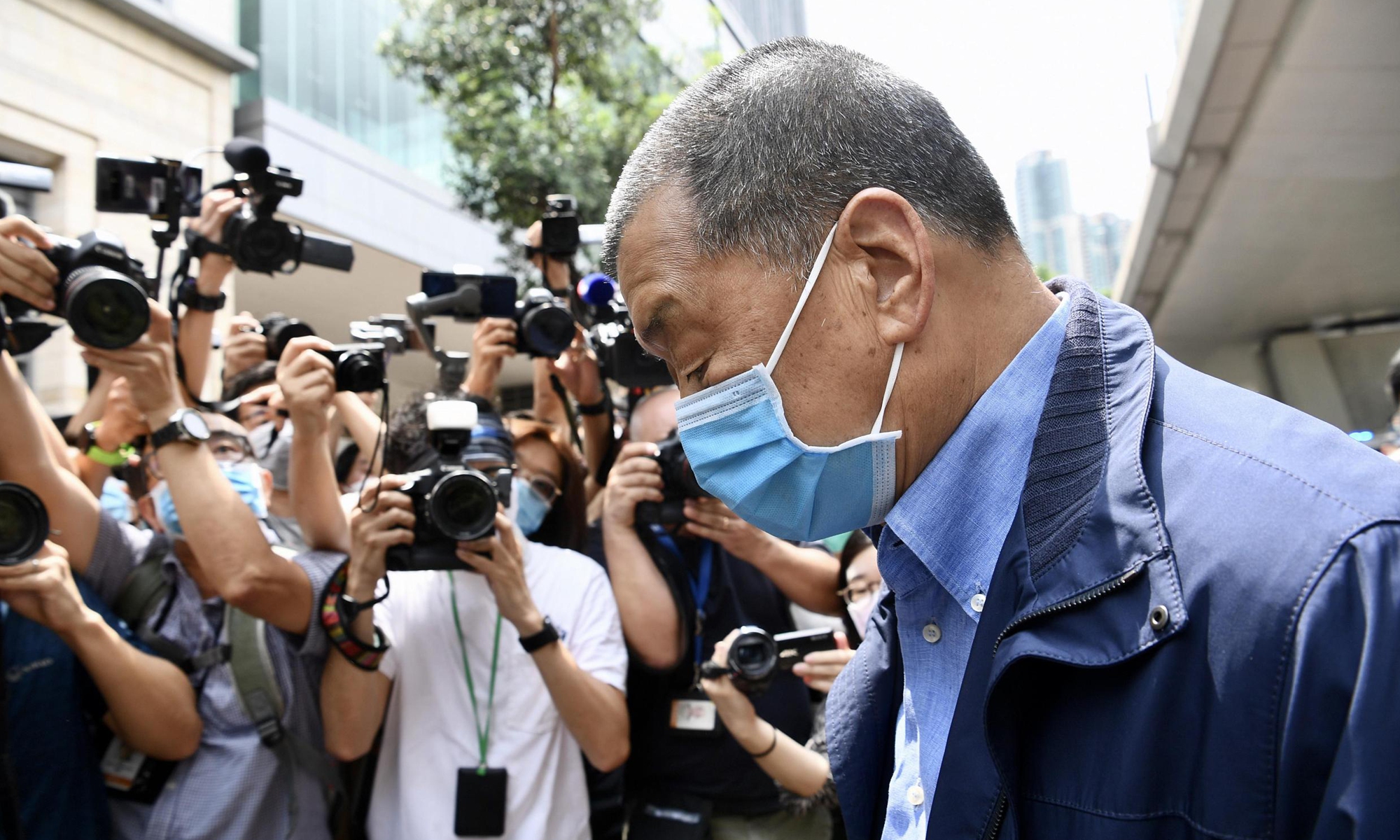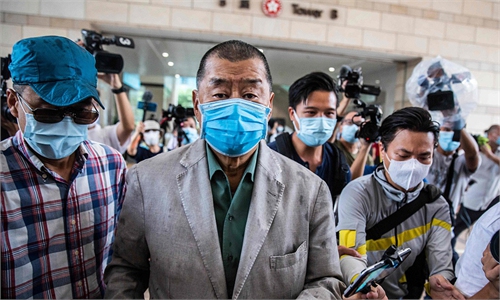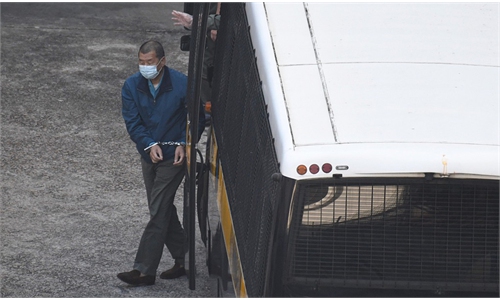Shutdown of Jimmy Lai's Apple Daily in HK possible amid sale of paper's Taiwan edition: observer

Jimmy Lai Photo: VCG
Experts noted the move is an attempt to recoup funds and respond to possible national security-related charges against Apple Daily in the near future. The possibility of a complete shutdown cannot be ruled out, the experts said.
According to a Hong Kong Stock Exchange filing on Monday, the identity of the buyer and the price have yet to be revealed. The parties to the MOU are still in discussion on the exact businesses and assets that may be sold. Hong Kong Apple Daily reported that a potential buyer has given an intention to purchase the assets in Taiwan, citing CEO Cheung Kim-hung.
After Lai was sentenced on Friday to 12 months and eight months in prison, respectively, for attending and organizing two illegal assemblies in August 2019, speculation has arisen among the public that secessionist media outlets related to Lai may be shut down amid the collapse of the city's major anti-government camp. Lai is also facing other serious charges related to the national security law for Hong Kong.
The scale of Apple Daily's business in Taiwan has been shrinking in the past few years. Next Digital has sold four office buildings in Neihu district, Taipei since 2018, as it struggles to make a profit amid an ongoing shift in advertising revenue to online and social media from newspapers globally, South China Morning Post reported in December.
Apple Daily is currently avoiding the limelight, not only financially by selling off part of its business, but also by changing its wording and concepts. "For example, as a major force in slandering the mainland, the expression "Wuhan pneumonia" has been changed to COVID-19 recently. This is also influenced by public opinion in Hong Kong," Tang Fei, a member of the Chinese Association of Hong Kong and Macao Studies, told the Global Times on Tuesday.
"However, this does not mean Apple Daily is going to start afresh," Tang said. "The current actions are just to avoid possible upcoming national security-related charges and to recoup funds for further overseas campaigning against China."
The tabloid has been declining in credibility in Hong Kong as many people and media have started to call for Apple Daily to be banned in Hong Kong. On Monday, a group of residents went to the government headquarters to petition the government to ban the publishing rights of Apple Daily as soon as possible, Ta Kung Pao reported.
Ta Kung Pao, one of Hong Kong's major newspapers, published a commentary on Friday, urging that Apple Daily should be banned in accordance with the law, considering its long-standing role in inciting and leading secessionist activities in Hong Kong in the past.
"Although its lies were eventually exposed, a large number of young people were incited by Apple Daily to engage in riots. The social order and rule of law in Hong Kong were seriously destroyed," it wrote. "The security of Hong Kong cannot be guaranteed unless Apple Daily ceases to exist."
Apple Daily has long been slammed for publishing sensational and fake articles. Lai is infamous for his support of Hong Kong rioters and instigating violent protests. He reportedly shorted Hong Kong stocks ahead of the illegal "Occupy Central" in 2014 to profit from the turmoil, colluded with foreign politicians and even made a plea for reckless interference from foreign countries in Hong Kong's affairs.
"Apple Daily has always been more of a political tool than a news outlet exercising its watchdog powers," Fan Peng, a member of the Chinese Association of Hong Kong and Macao Studies, told the Global Times. "Representing the extremist camp in Hong Kong led by Lai, Apple Daily has been working to tear apart Hong Kong society for the past two decades, and has never taken the responsibility as media."
Tang noted that the possibility of Apple Daily being shut down directly by local authorities in accordance with relevant laws cannot be ruled out, especially considering the great negative impact it had on Hong Kong society and youth, and it is likely that a liquidation is imminent.


